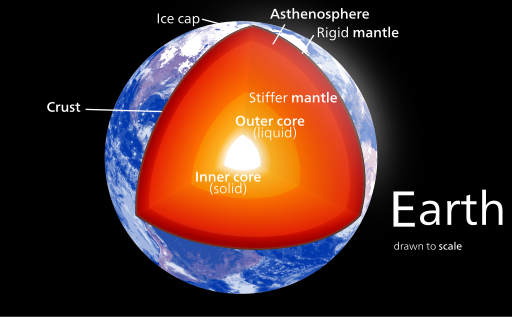Tonight at Midnight, for most of the World anyway, the year will click over to 2012. And with it the opportunity for a fresh start, a new beginning if you will. In our physical world of time and space everything has a beginning. The day has a beginning, as does the month and the year. We had a beginning at our conception and then our birth. Our Nation and all of the nations of the world had beginnings at some point in the history of mankind. And all creation had a beginning, at the Big Bang when God spoke the Universe into existence - Genesis 1:1ff (NIV).
For many, tonight will be a night to celebrate - party with friends, watch the ball drop in Times Square or the fireworks in Sydney or Hong Kong. Some will party too much and regret it tomorrow. For some they will meet their end before they can even begin the new year. For all of us, we need to look at the new year and this time of new beginnings as an opportunity for change. Change for the world (World Peace), change for our country (an improving economy) and change for ourselves (make a lifestyle improvement).
Every year many of us make new years resolutions, and many of us fail to keep them, in spite of our best efforts. Estimates show that about 62% of all adult Americans make at least one new years resolution. Of these 75% last a week, 64% a month and 46% last for 6 months. Only 8% keep their resolution for the full year. Even with the poor odds of keeping your resolution for the full year research shows that people who make resolutions are 10 times more likely to attain their goals than people who don't. There is something about having specific, written goals that helps to keep us on track. It gives us an identified target to reach and a sense of hope that when we do reach it, we will be better for having made the effort.
long after the mood in which it was made has left you.
Cavett Robert
To keep a resolution well made requires hard work and determination. As the quote implies, many a resolution is made without forethought as to how it will be carried out. We have all heard the story of "the boy who cried wolf." When he finally spoke the truth he was not believed. If we make lighthearted resolutions and then do not keep them, it is a reflection on our character.
The concept of character implies a variety of attributes including the existence or lack of virtues such as integrity, courage, fortitude, honesty, and loyalty, or of good behaviors or habits. The Bible defines character as any behavior or activity that reflects the character of God. The Book of Genesis (Genesis 1:26ff NIV) says that God created man in His own image. Consistency of character is regarded as integrity - the honesty and truthfulness or accuracy of one's actions. We are judged to "have integrity" to the extent that we act according to the values, beliefs and principles we claim to hold.
So as we make those same resolutions again this year - lose weight, get fit, quit smoking/drinking - lets make a resolution together much like the one expressed on the left side of the card above: Live a simple, sincere life... cultivate cheerfulness and charity... be frugal in expenses, careful in conversations, diligent in service... and have a child-like trust in God to care for us in all things.
Happy New Year!
Ephesians 4:31-32 - "Get rid of all bitterness, rage, anger, harsh words, and slander, as well as all types of evil behavior. 32Instead, be kind to each other, tenderhearted, forgiving one another, just as God through Christ has forgiven you. (NLT)"


